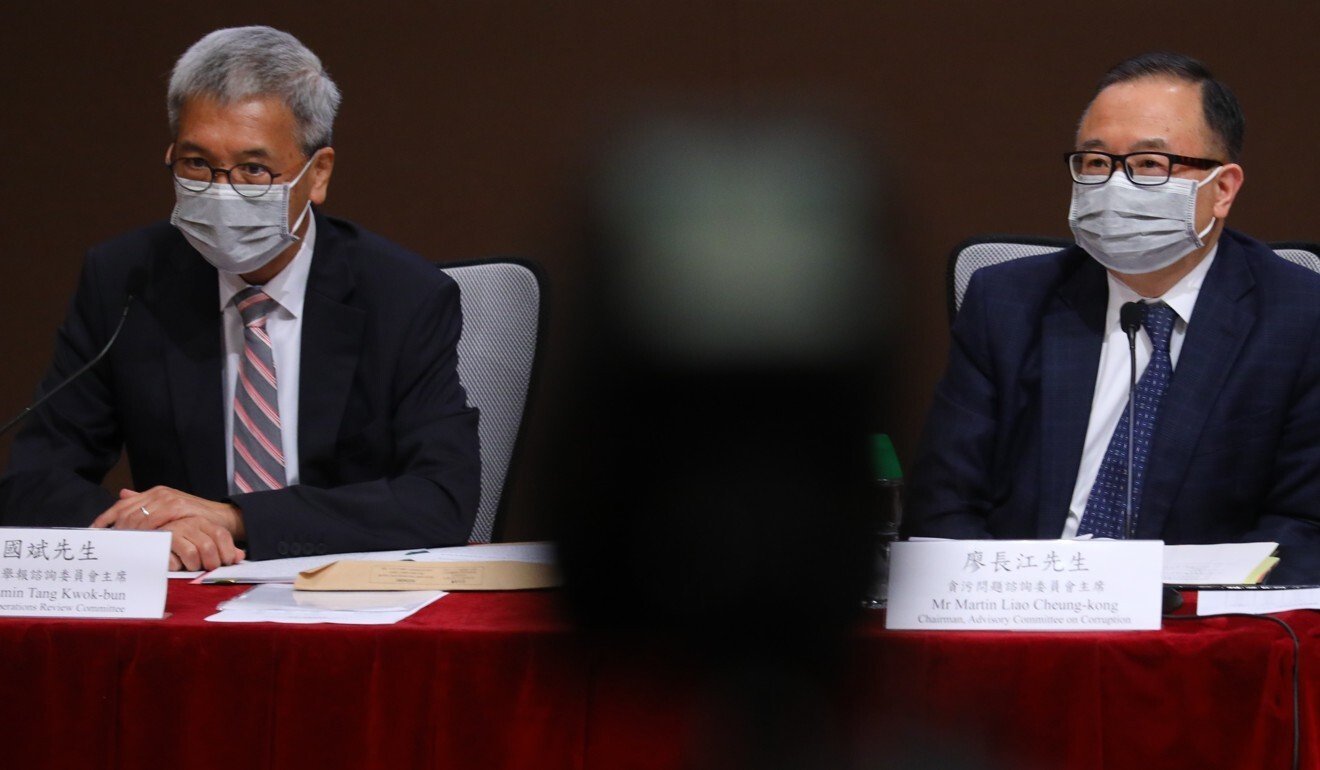Hong Kong News

Corruption complaints in Hong Kong plunge to 40-year low in 2020
Complaints about corruption in Hong Kong dropped to a 40-year low last year, but advisers to the city’s anti-graft watchdog have urged vigilance, attributing the dip to the Covid-19 pandemic and possible new ways to avoid detection.
The city recorded 1,924 corruption submissions, also known as non-election-related complaints, for 2020, down from 2,297 in 2019, advisers revealed at an annual briefing on Monday. The drop in complaints received last year from the private sector exceeded those from the public sector.
Among public organisations, the most complaints were recorded against police, on issues ranging from suspected blackmailing to dubious attempts to get better shifts. They were followed by the Food and Environmental Hygiene Department and the Housing Department.
“2020 has been a very exceptional year … A lot of economic activities have been stalled by the coronavirus, so that’s one contributing factor,” said Benjamin Tang Kwok-bun, chairman of the Independent Commission Against Corruption’s operation review committee.
With people more concerned about combating the virus and keeping their jobs, a drop in complaints was “not surprising”, he said.
The chairmen of four advisory committees – which monitor the watchdog’s operations, prevention work, community relations and general policies – gave their yearly round-up at the ICAC headquarters.
The overall complaint figure presented for 2020 was the lowest since 1980 when 1,772 cases were recorded. Since 1996, the figures hovered above 3,000 – and hit 4,476 in 2001 – until 2012, when they dropped to around 2,000.
While Tang believed the pandemic was likely to be the cause for the dip in complaints, Martin Liao Cheung-kong, who chairs the advisory committee on corruption, issued words of caution.
“We cannot rule out a change in the way crimes were committed,” said Liao, who is also a pro-establishment lawmaker for the commercial sector. He feared the trend could possibly be due to criminals finding a better way to avoid detection.
Among the 1,924 complaints received, 1,134 were filed against the private sector, down from the 1,480 in 2019.

Government departments accounted for 629 complaints recorded in 2020, a drop from 647 in the previous year. Complaints against other publicly funded bodies declined from 170 in 2019 to 161 last year.
Police received 173 complaints, down from 182 in the previous year, when the city was gripped by anti-government protests. In one particular incident on July 21, 2019, officers were accused of arriving late at the scene of an attack on protesters and passengers at Yuen Long MTR station, leading to complaints against the force.
Tang said an investigation into the incident was under way, with his committee receiving regular reports from the ICAC, although he refused to reveal the progress citing confidentiality issues.
But he said his committee was confident the ICAC would conduct its work “without fear or favour”.
As of last year, the ICAC had received 12 protest-related complaints against public officers, nine of which were directed at police.
The complaints received against police in 2020 included accusations of blackmailing, threats, manipulations for dubious shift arrangements, receiving gifts, and covering for drug traffickers, he said.
The Food and Environmental Hygiene Department, which came in second, received 96 complaints in 2020, down from 100 in the previous year. The Housing Department, which ranked third, received 37 complaints last year, up from 33 in 2019.
Separately, the government earlier floated a proposal to extend voting for elections to city residents based in mainland China, prompting fears this might make local polls susceptible to election fraud.
Adrian Wong Koon-man, who chairs the Corruption Prevention Advisory Committee, said the ICAC had informed the government that it should put in place a system that could be scrutinised. But he said further work on the proposal could only be carried out after authorities had fully revealed plans.











